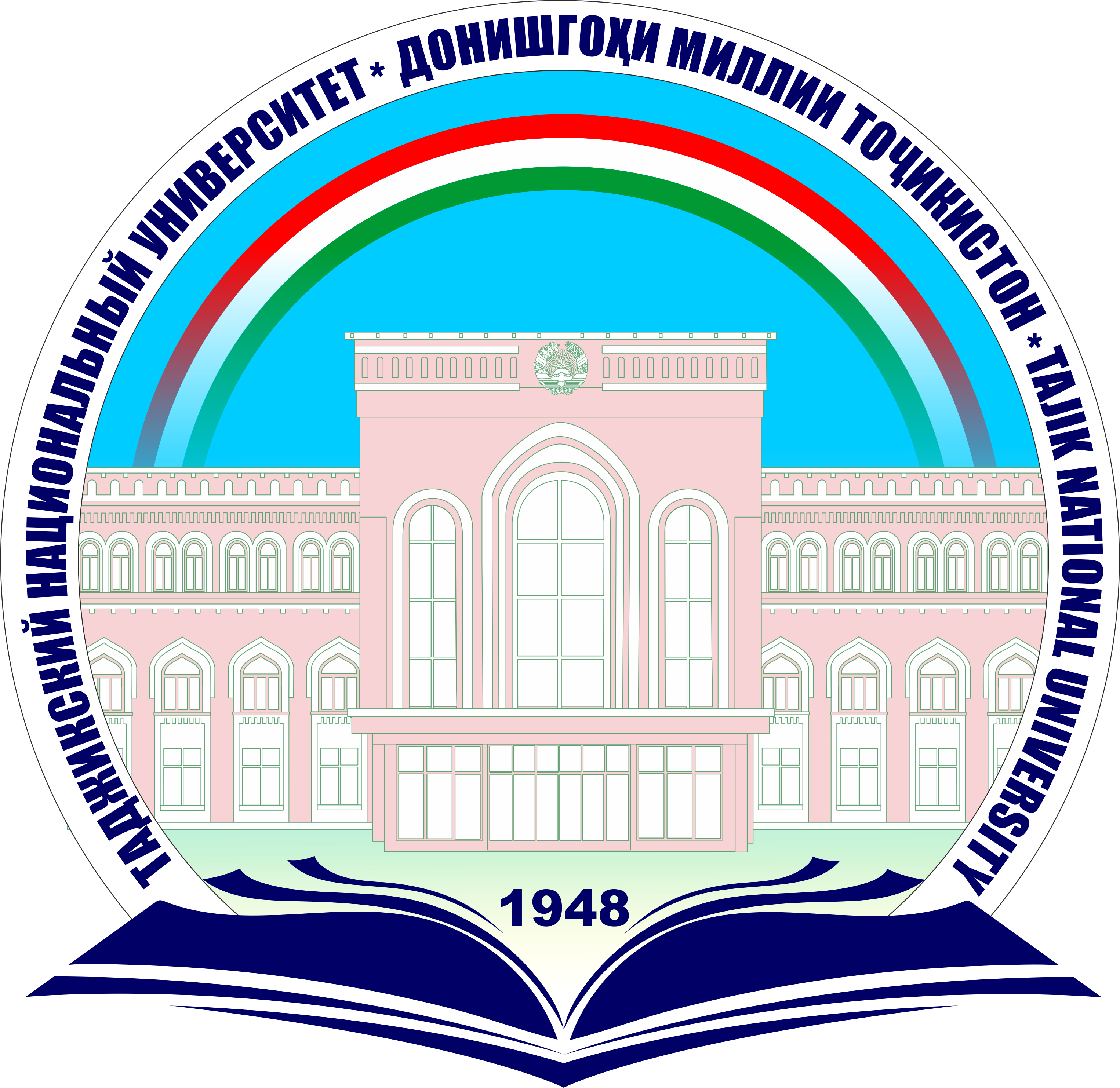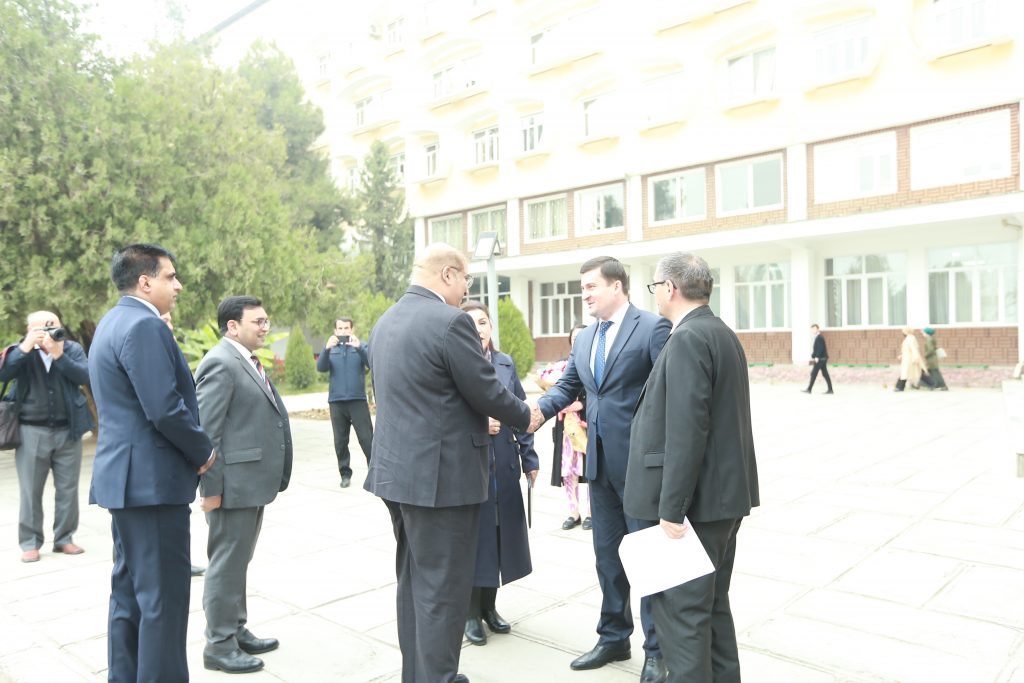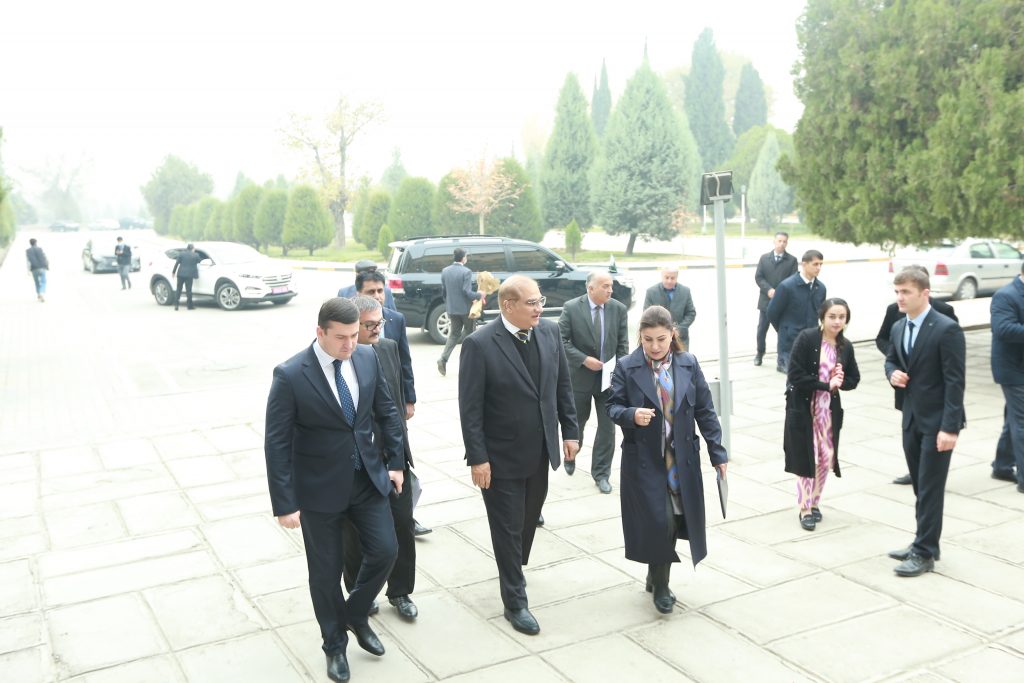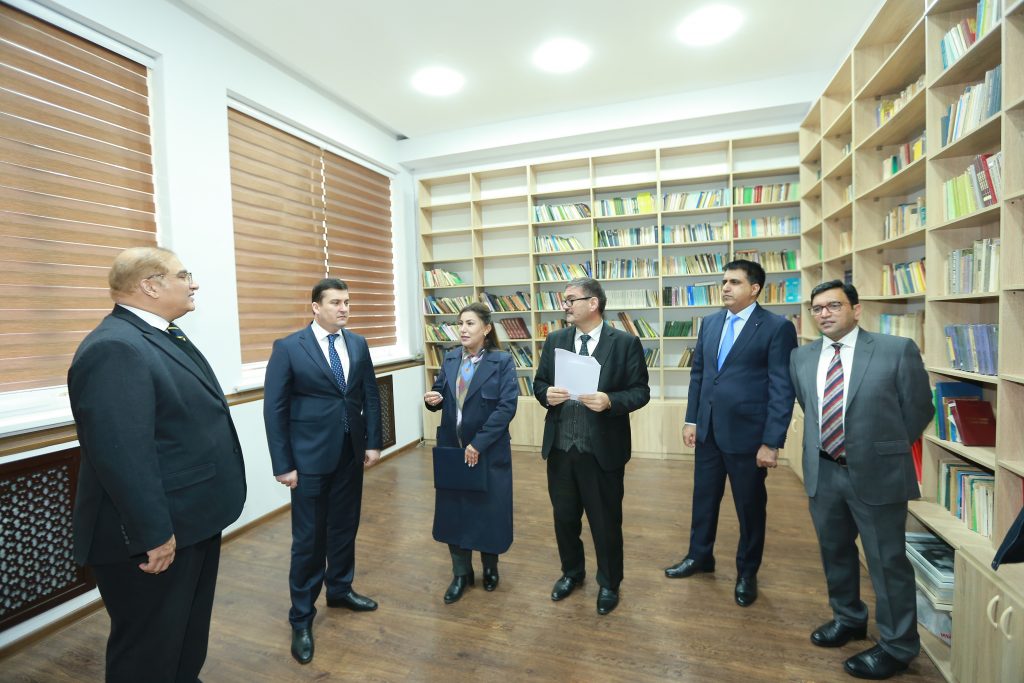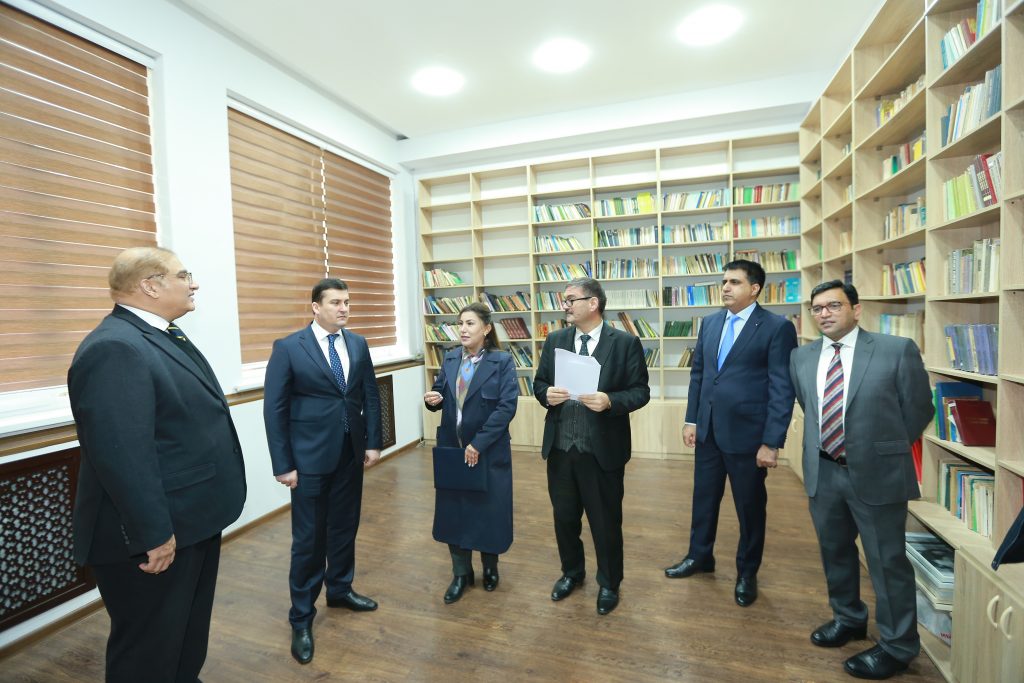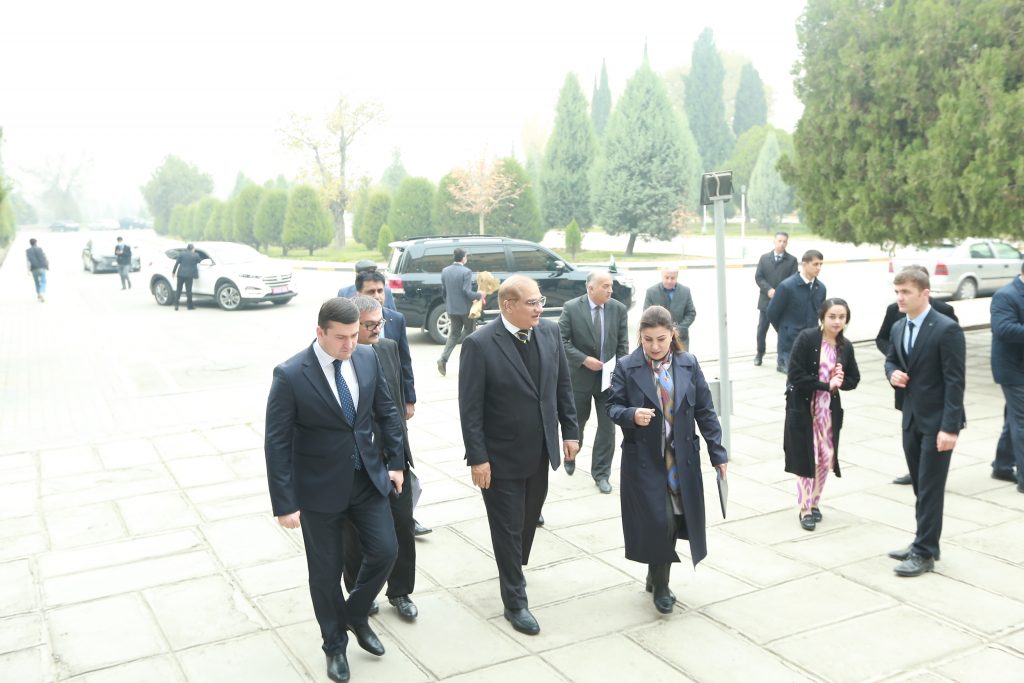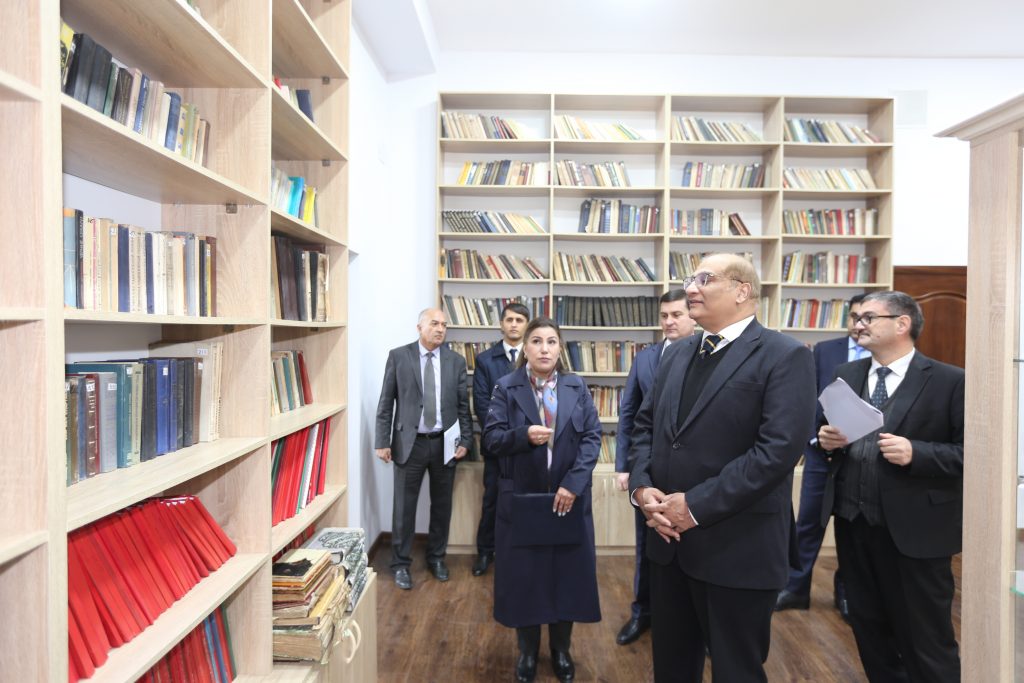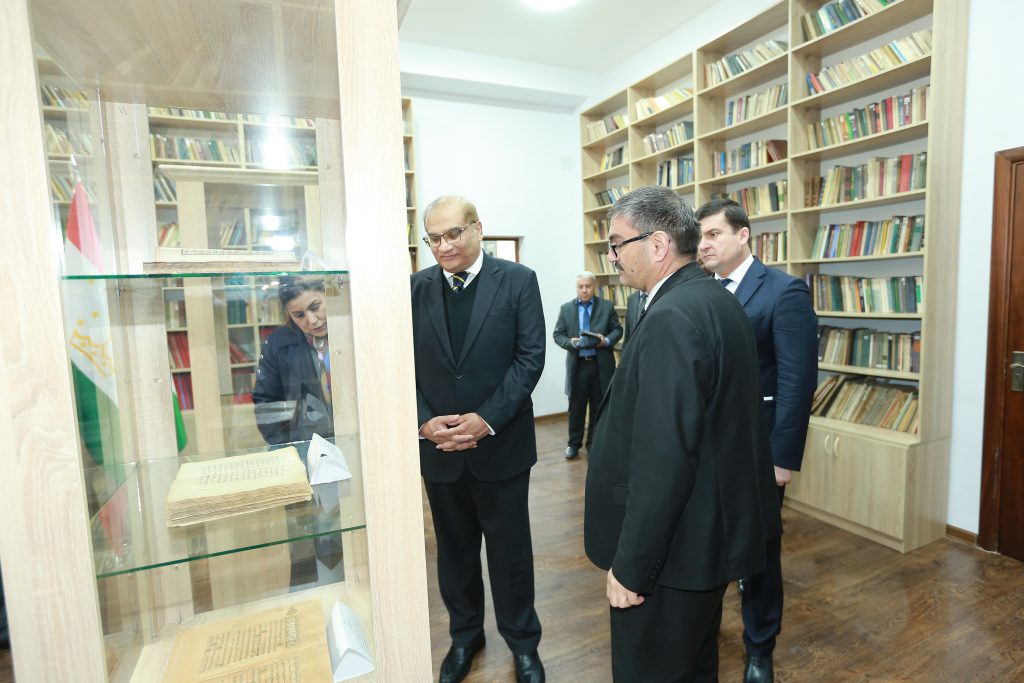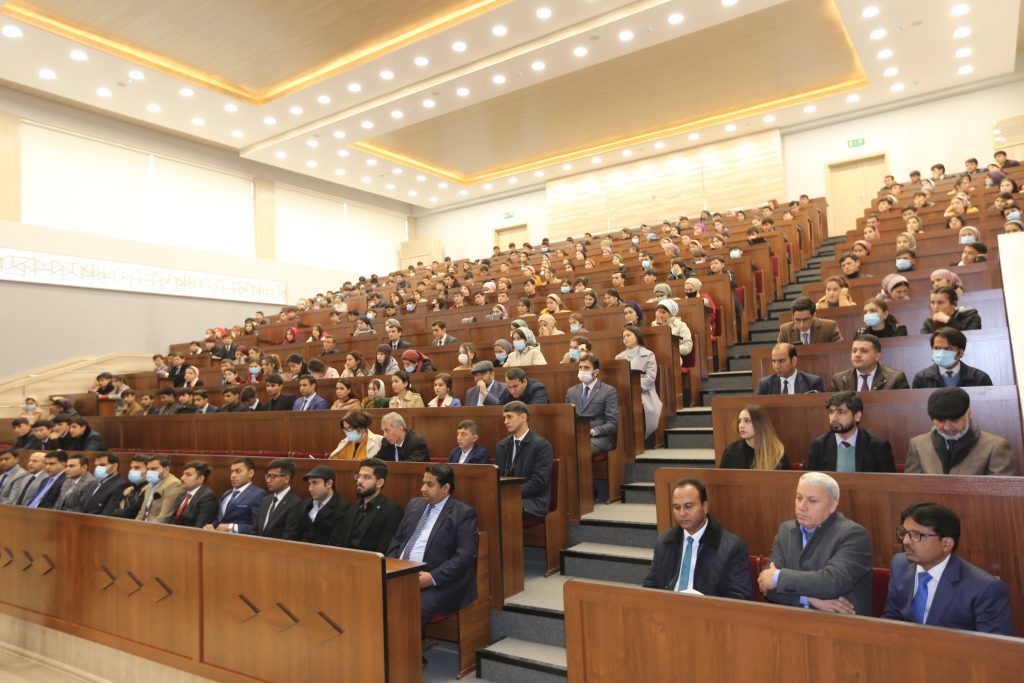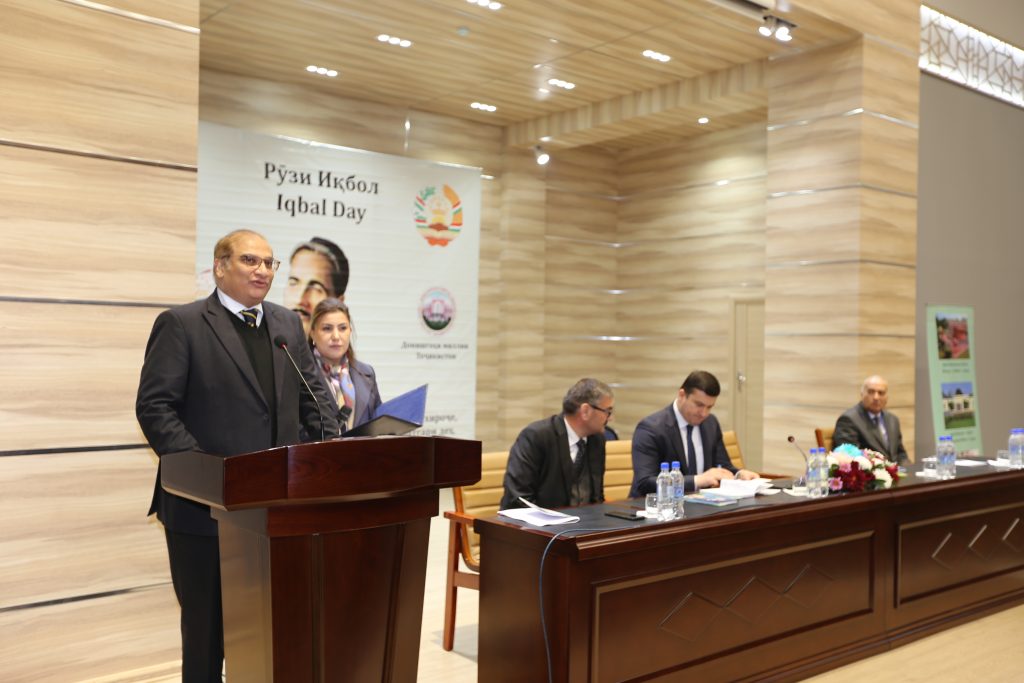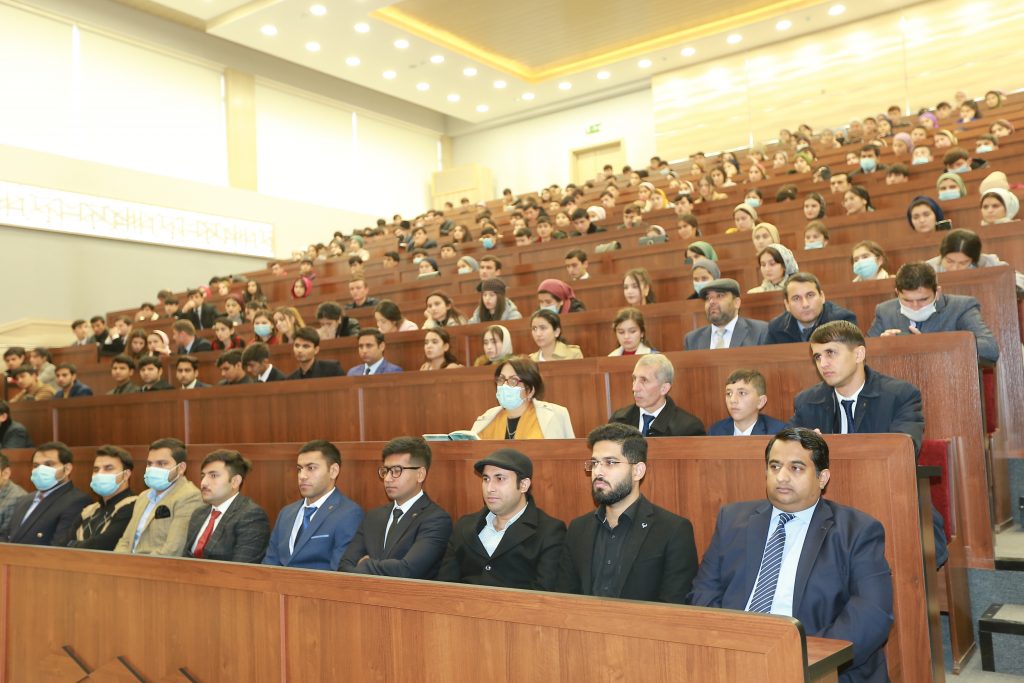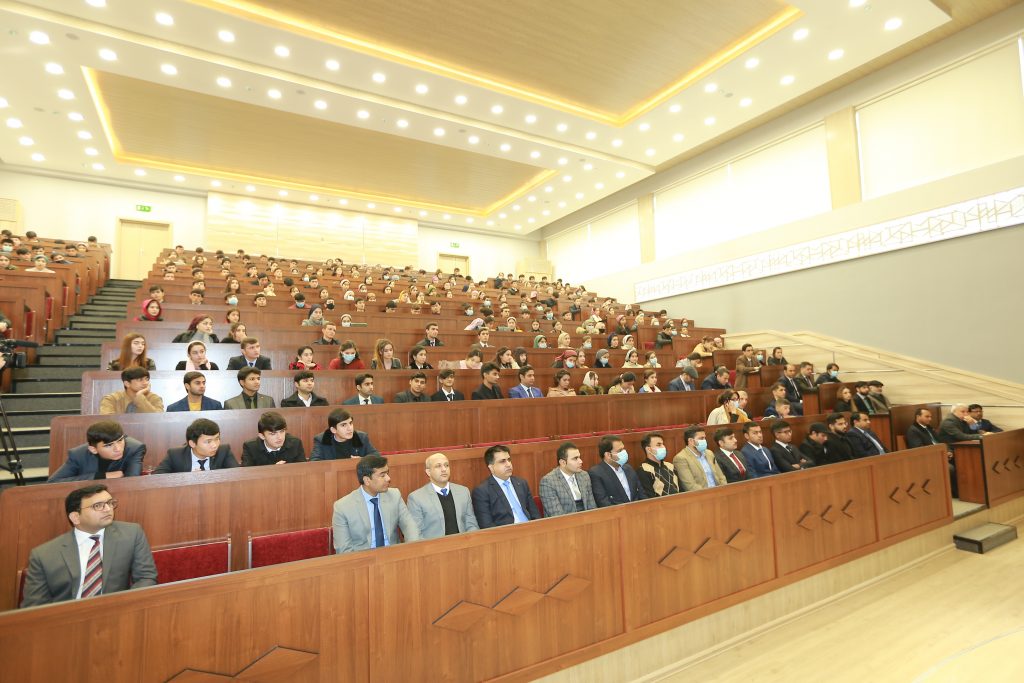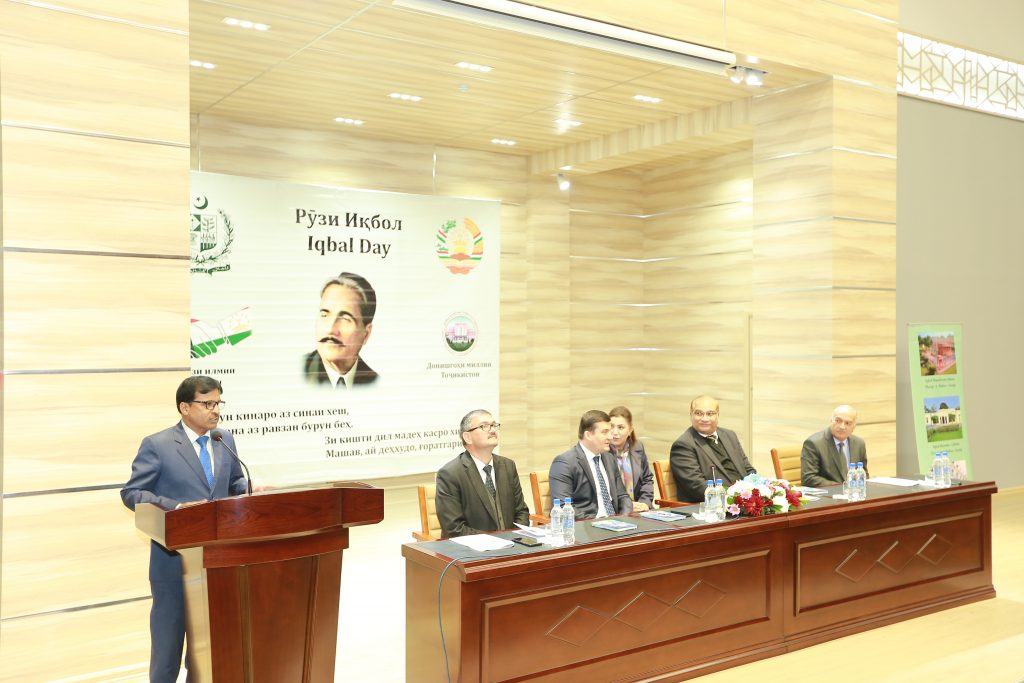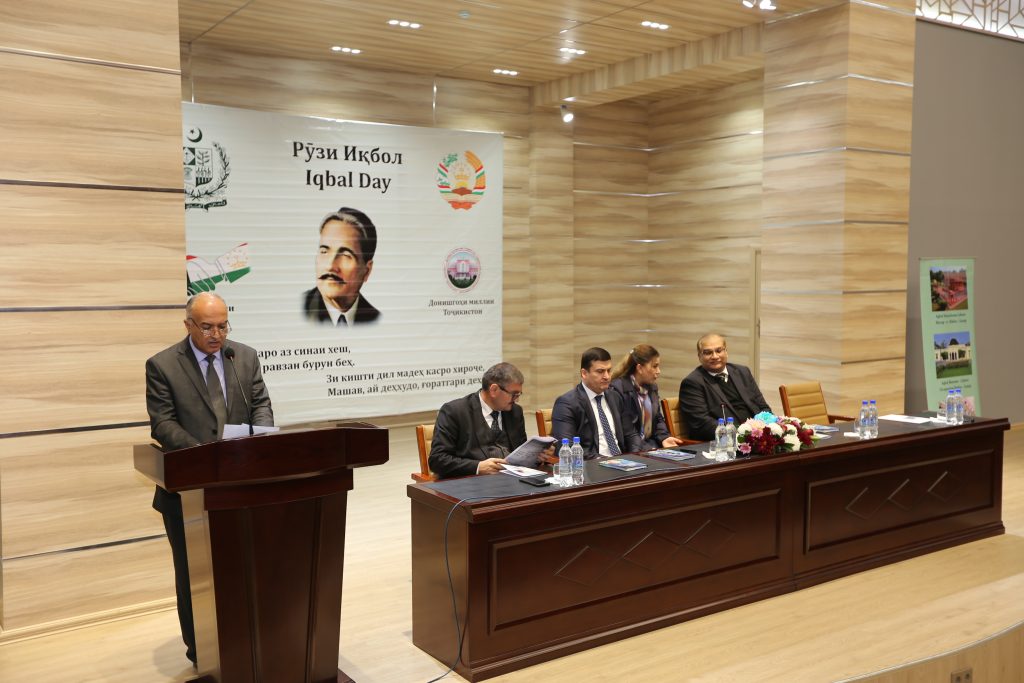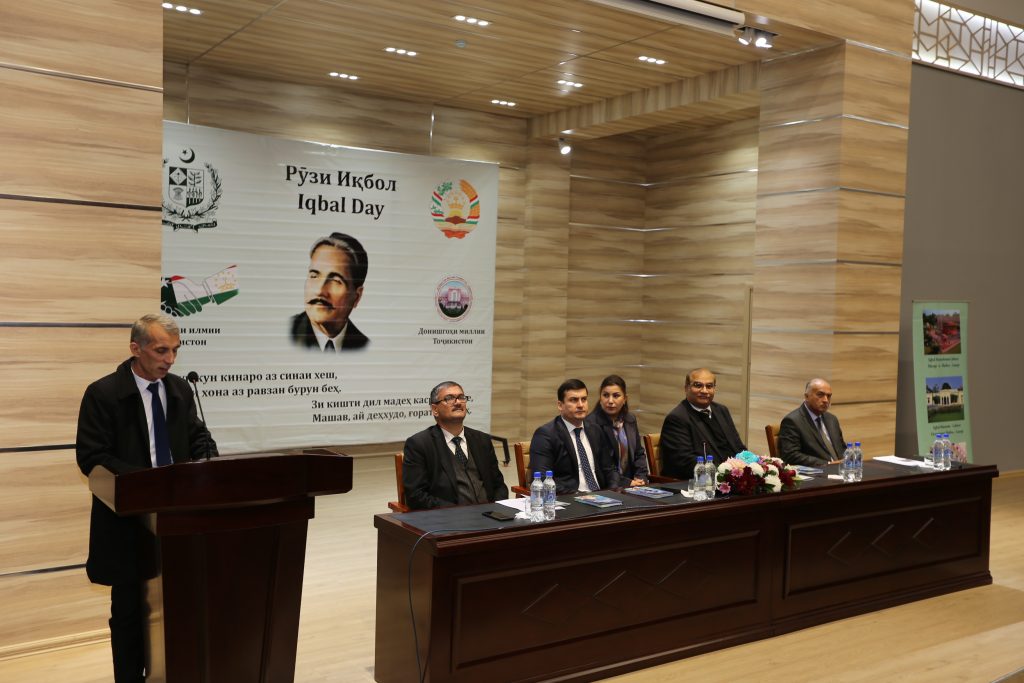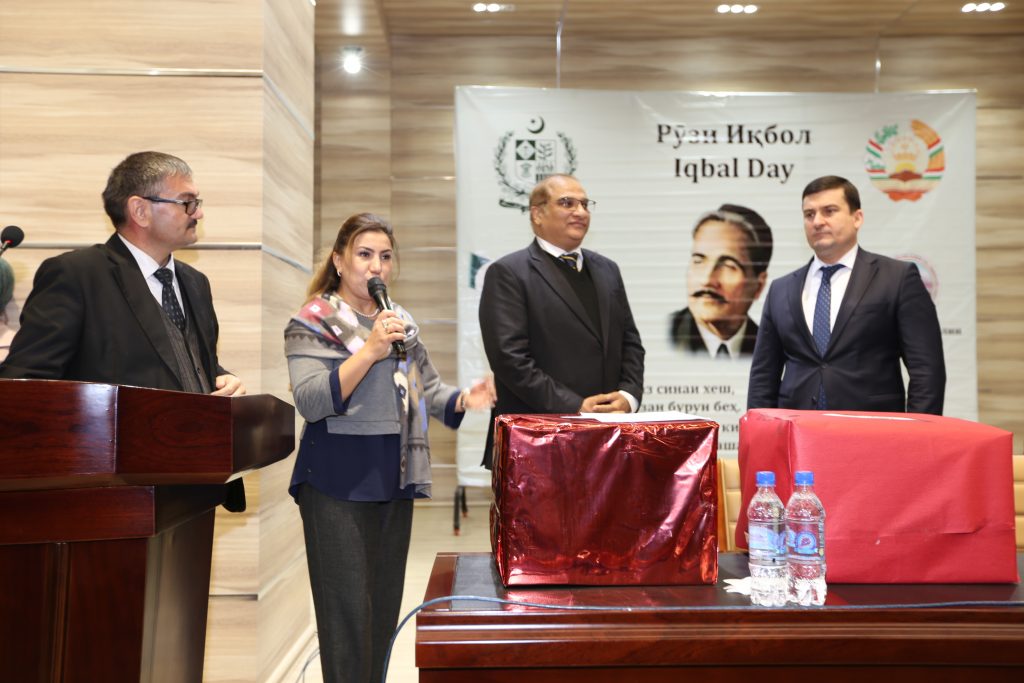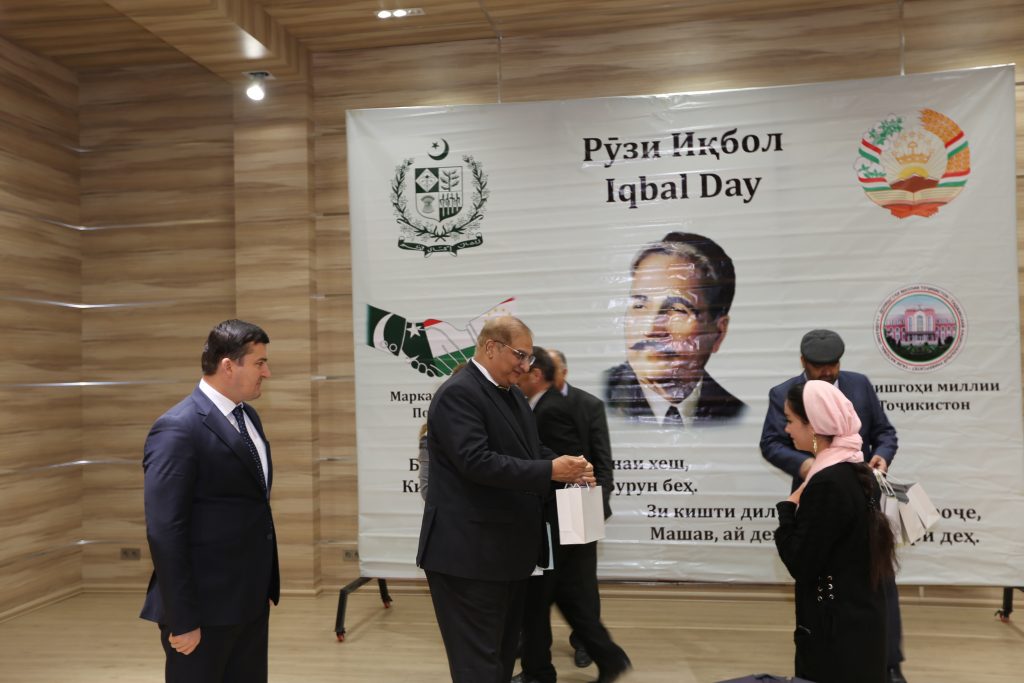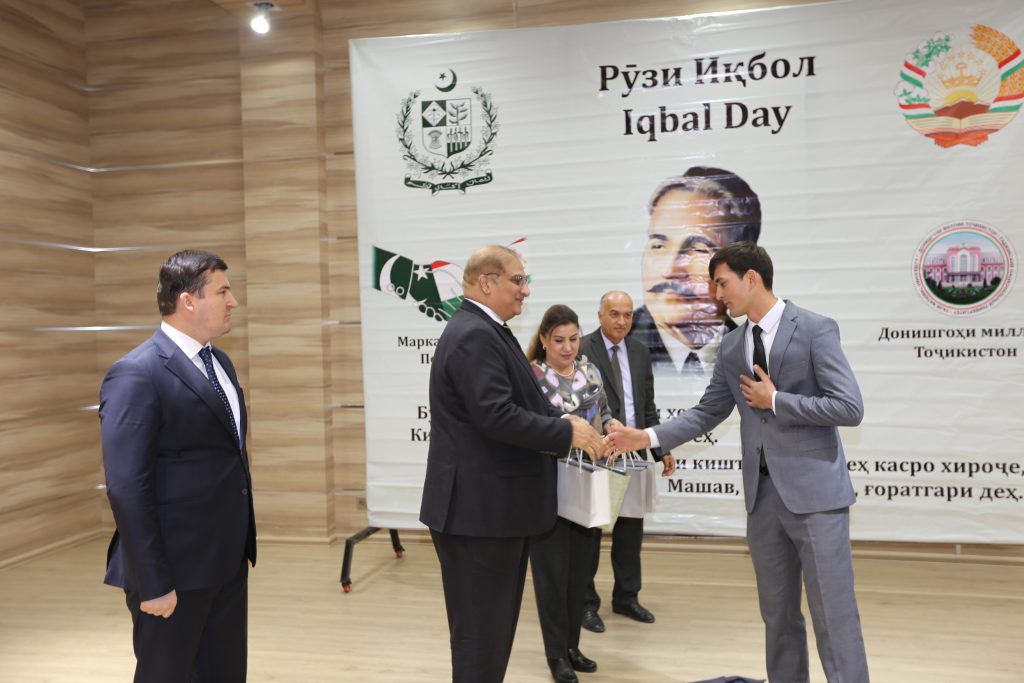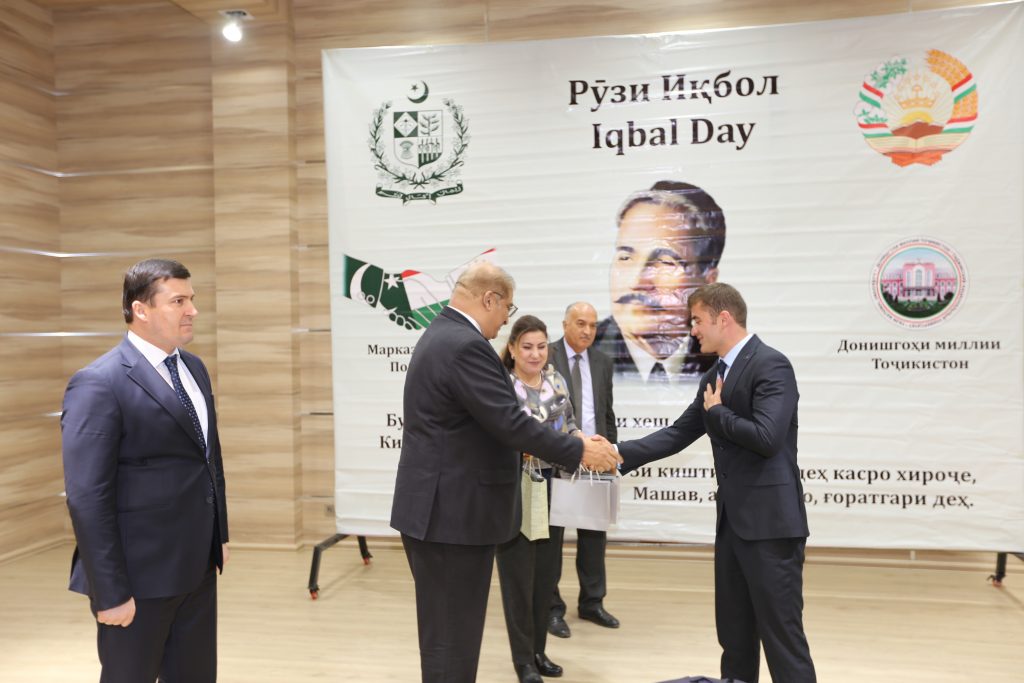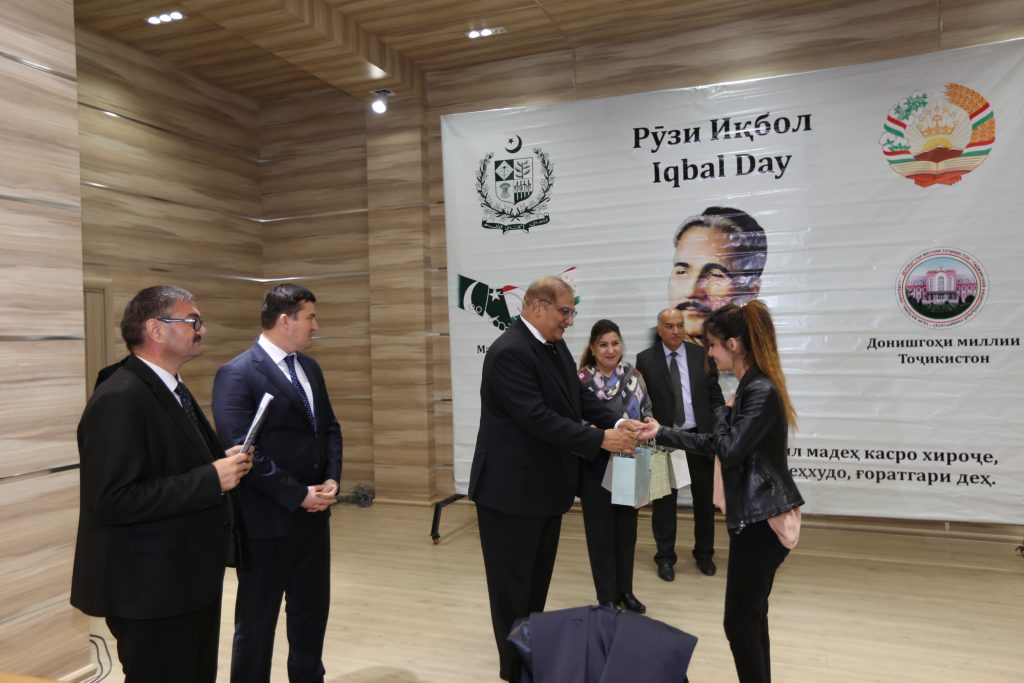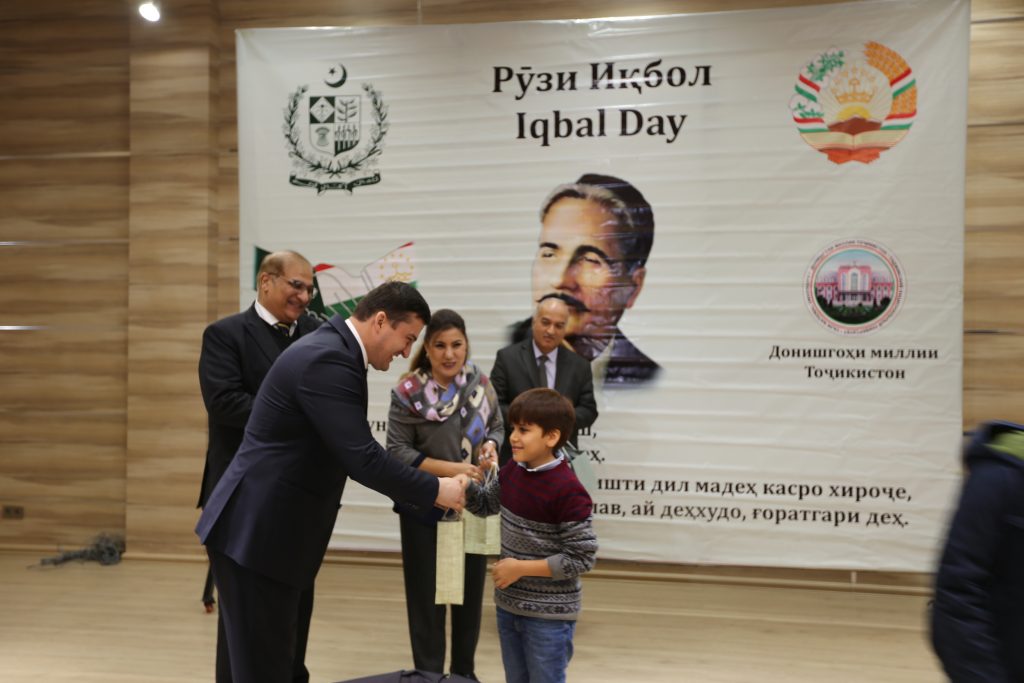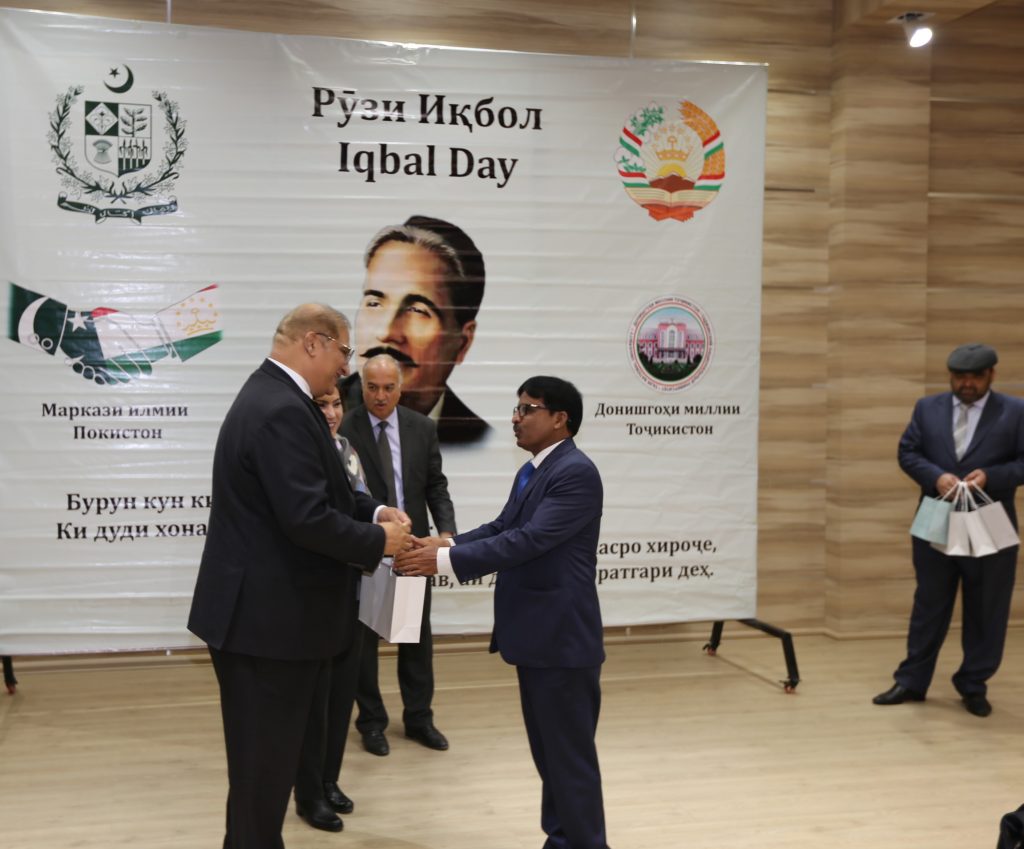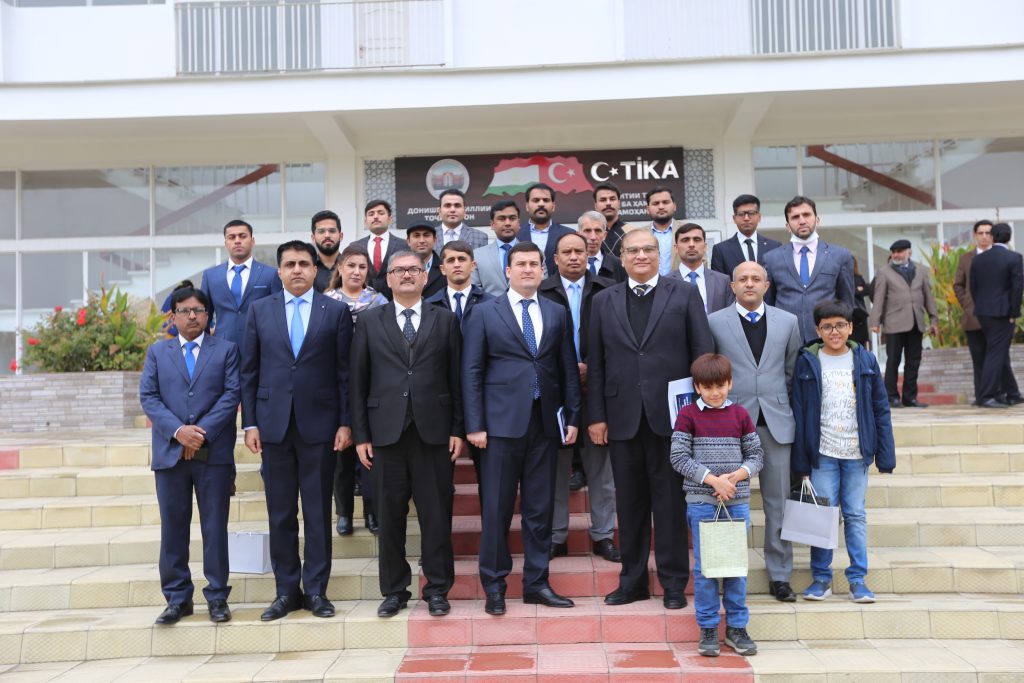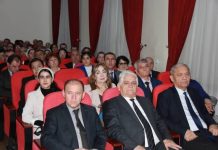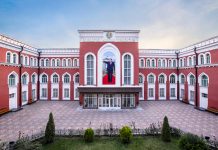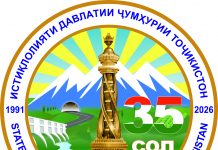On 9 November 2021, the Rector of Tajik National University, Professor Khushvakhtzoda Q. Kh. received the Ambassador Extraordinary and Plenipotentiary of the Islamic Republic of Pakistan to Tajikistan Imran Haydar. During the meeting, Imran Haydar got acquainted with the expositions of the scientific library of the TNU named after Professor Sharifjon Huseynzoda.
Then the guests went to the assembly hall of the Tajik National University campus, where the literary and poetry hour “Day of Iqbal” took place. The event was organized by the teachers of the Department of Indo-Pakistani Philology of the Faculty of Asian and European Languages.
Iqbal day is celebrated annually on November 9 as a tribute to “Poet of the East” Allama Muhammad Iqbal. Allama Muhammad Iqbal was a politician, philosopher and poet in British India. His writings are written in Urdu, Punjabi, Persian and English. Allama Muhammad Iqbal was born on 9 November 1877 in Sialkot, within the Punjab Province of British India (now in Pakistan). He died on 21 April 1938 in Lahore, Punjab, British India.
The meeting was opened by the rector professor Khushvakhtzoda Q. Kh. who congratulated those present on the holiday and shared his thoughts on different aspects of Allama Muhammad Iqbal’s poetry and philosophy.
The Ambassador of the Islamic Republic of Pakistan to the Republic of Tajikistan, Mr. Imran Haydar, also joined in the congratulations. He noted that Muhammad Iqbal was a poet, philosopher, and politician, as well as an academic, barrister and scholar in British India who is widely regarded as having inspired the Pakistan Movement. He is called the “Spiritual Father of Pakistan “.
Several scientists from our university spoke about various aspects of the activities of Allama Muhammad Iqbal. They stressed that Muhammad Iqbal’s works are popular and appreciated all over the world.
A large number of students of the Indo-Pakistani Philology Department of Tajik National University recited verses of Allama Muhammad Iqbal in Urdu and Tajik languages.

